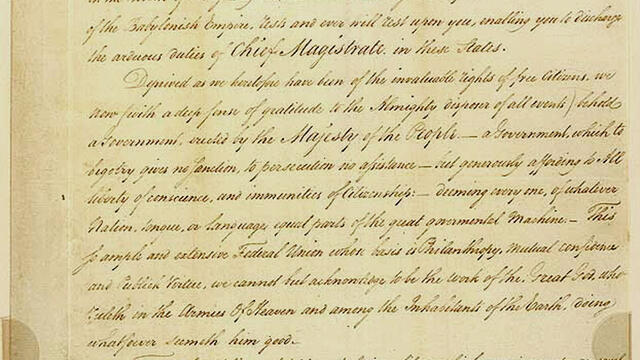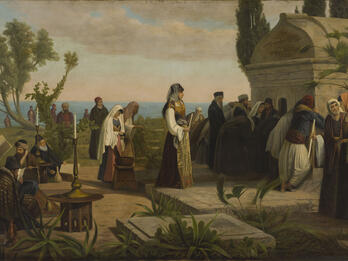Political Life and Thought
Jews debated all sides of the major political issues of their day. Some welcomed the idea of equality, whereas others feared the loss of their religious-institutional distinctiveness.

During the period 1750–1880, the political status of Jews changed dramatically from England and its colonies in the West to Jews of the Ottoman East and points beyond.
Jews entered the larger world of politics in myriad ways. They rethought the relationship between capital and society, religion and society, and gender and society; they wrote works on colonialism, slavery, and democracy. Jews stood in the British houses of Parliament, in the U.S. Senate, and in local offices, and served in the militaries of several nations, in each case entering domains that had been barred to them for centuries. They supported a vibrant press in multiple languages and diverse cultural and political tones; the entire spectrum of Jewish life and thought played out on its pages.
At the beginning of this period, most Jews were organized in self-governing units within the larger polity. While they never had full political autonomy and were always subject to local as well as distant political powers, they functioned as many smaller units tended to in the early modern period: running their own affairs, employing their own language, and educating their children while paying taxes and homage to the princes, dukes, bishops, kings, and emperors who granted them the right to dwell and pursue commerce in their domains. This internal political life should be seen within the framework of variable local political practices of the early modern period that only later came to be subsumed under nation-states. Local Jewish political governance and its regulation abounded.
Jews expressed fealty to their political overlords. In 1780, Rabbi Ezekiel Landau of Prague delivered a eulogy for Empress Maria Theresa. Remembered for her cruel banishment of Bohemian Jews from her domains in 1745, she seems an unlikely candidate for such a demonstration of grief and loyalty. The text testifies to the status and meaning of the Jews as subjects in the Habsburg Empire. Over the course of the nineteenth century, this began to change.
Local politics gave way to stronger centralizing nation-states that granted citizenship while insisting on the right to create a unified nationality, inclusive of cultural and educational dimensions. An intense debate ensued in the European sphere regarding the place of Christianity within the new national identities. If it remained central, then Jews would continue to remain unequal. In eloquent pleas to the governing bodies of nation-states, Jews argued that nation-states must extend equal rights under the law to all citizens regardless of religion in order to be faithful to their own stated ideals.
Jews debated all sides of the major political issues of their day. Some welcomed the idea of equality, whereas others feared the loss of their religious-institutional distinctiveness. Some defended and others repudiated the notion of private property and capital. Some defended and others repudiated the institution of slavery. Jewish women advocated for gender equality long before any nation was ready to entertain it. In the mid-nineteenth century, the first Jew elected to the U.S. Congress, Lewis Charles Levin, ran on a platform of temperance, nativism, and anti-Catholicism, and Benjamin Disraeli served in the British Parliament. Jews formed transnational societies, such as the Alliance Israélite Universelle, to aid Jews in trouble and laid the first foundations for Zionist thinking when antisemitism grew to threaten the dream of political equality.
Much of the political discourse by and about Jews was disseminated via the press. Although the Posen Library generally privileges the message over the medium, journalism is an exception. Its ubiquitous growth and presence, particularly in Central and Eastern Europe (later in the Ottoman Empire), profoundly shaped political debates and created a new sense of a Jewish public sphere.


